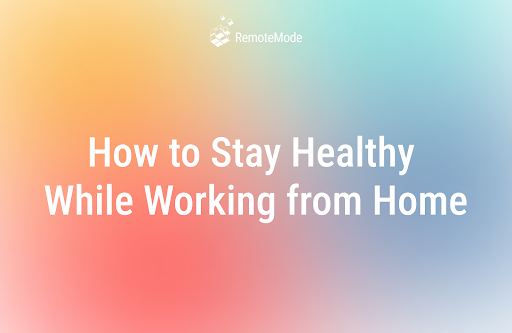The 6 Best Questions to Ask an Employer in an Interview

A well executed job interview is a two-way conversation. While rookie candidates may feel like they are facing an inquisition, an interview is not an interrogation. Rather, when you confer with a potential employer, the exchange should feel like a dialog. Not only is the hiring manager trying to get to know you and determine how you would fit into the organization, you should get to know the interviewer to determine how well the enterprise fits you. It’s a two-way street.
If you are nervous, recognize that the interviewer is likely nervous, too. You want to make a good impression, and so does the manager. The interviewer is under pressure to evaluate your potential in only a few minutes. The person behind the desk has three options:
- Hire you on the spot.
- Send your CV up the chain with a recommendation for another interview.
- Wish you good luck and suggest you continue your job hunt.
The manager does not want to get this wrong. Hiring is an expensive process and requires a great deal of a manager’s time. On the one hand, the faster they can find the right person, the sooner they can get back to their real job. On the other hand, if they hire the wrong person, they have let down their team and the company and given themselves a giant headache. On the third hand, you may be the very person the company needs to take them to the next level, and if the interviewer lets you walk, the business has missed out on a huge opportunity. So, while your nerves are jumping, know that the interviewer’s nerves are jumping too.
Candidates typically focus on anticipating and answering questions as they prepare for an interview. That is, of course, a wise strategy. But it is only half the strategy for half the dialog. They often forget about or downplay the importance of their contribution to the exchange—the questions the candidate should ask the interviewer. Asking meaningful, insightful questions is just as important as giving honest and forthright answers. Interviewers welcome thought-provoking questions from candidates. The questions help guide the interviewer to talk about the aspects of the position and the company that will give the candidates the data they need to make an informed decision.
Following are six sure-fire topics around which you can create questions to get the information you need while showing your genuine interest in the job for which you are interviewing.
#1 – The Job
Crucial to your decision about whether you should take an offer is to understand what specifically you will be expected to do. Don’t assume that the interviewer’s questions are tailored to the job you are seeking. When invited, ask such direct questions as:
- How does someone in this position spend eight hours in a typical day?
- Can you tell me about a specific project I might work on?
- What characteristics are most important for a person to be successful at this position?
#2 – Training
Assuming you are interviewing for an entry-level position, you want to know how the company will help you come up to speed and whether they invest in new employees. The manager cannot expect you to know every aspect of your new job. Ask questions about the plan for training and professional development:
- Who would be my coach and mentor to get me started off on the right foot?
- Does the company provide opportunities for professional advancement?
- Where did the person go who had this position before me?
#3 – The Interviewer
The person conducting the interview may or may not be your potential future boss. You may, in fact, face a panel of interviewers, some of whom are in management and others on the technical team. Learn about them to get a sense of the kind of people you would be working with:
- How long have you been employed here?
- What did you do before you got your current job?
- What’s the best thing about working for this company?
#4 – The Company
When you begin a career, it’s not just about punching a clock and getting a paycheck. You become part of an organization. You create a symbiotic relationship. The company profits from your expertise and effort. You, in turn, should receive benefits that will boost your long-term career goals. The company wants you to be loyal, and you should expect loyalty from the company in return. Include such questions as:
- Where do you see this company going in the next five years?
- What are top management’s current goals?
- What is the most exciting aspect of the company’s future?
#5 – The Team
A culture of teamwork pervades most businesses today. Rarely does an individual get isolated in a broom closet to crunch numbers all day. You will spend at least half of your waking hours for who knows how long interacting with teammates. Ask questions that undercover the personality of the people you will work with every day:
- With whom will I work most closely on a daily basis?
- To whom will I report?
- What are the team’s greatest strengths and biggest challenges?
#6 – The Company Culture
You want to know whether the overall company culture into which you will assimilate operates by a manual of standard operating procedures or is more like the wild wild west. Company culture is deeply entrenched, and if you chafe under tight restrictions, or if you get vertigo when you can’t see the ground, you don’t want to step into an organization that will make you uncomfortable all day every day. Consider these types of questions:
- Is the work environment collaborative or independent?
- Does the office have traditions you enjoy?
- Do people on the team get together outside of the office?
Final Thoughts
While you may want to pose many questions to the interviewer, be respectful of the person’s time. The first question you may want to ask is, “When do you need to wrap up our time together today, so I can make the best use of your time?” And always leave yourself a couple minutes at the end of the question-and-answer period to ask the final critical question: “What are the next steps in the interview process?”
RemoteMode’s full-service career preparation program includes not only stellar training but aids in every aspect of launching a new career, including comprehensive interview preparation. Professional career counselors and industry experts are available to ensure you crush that all-important first interview. Contact a RemoteMode career counselor today to learn more about the extensive services they offer as part of your training for your first job in your dream career.
Take the first step to your new remote career!






